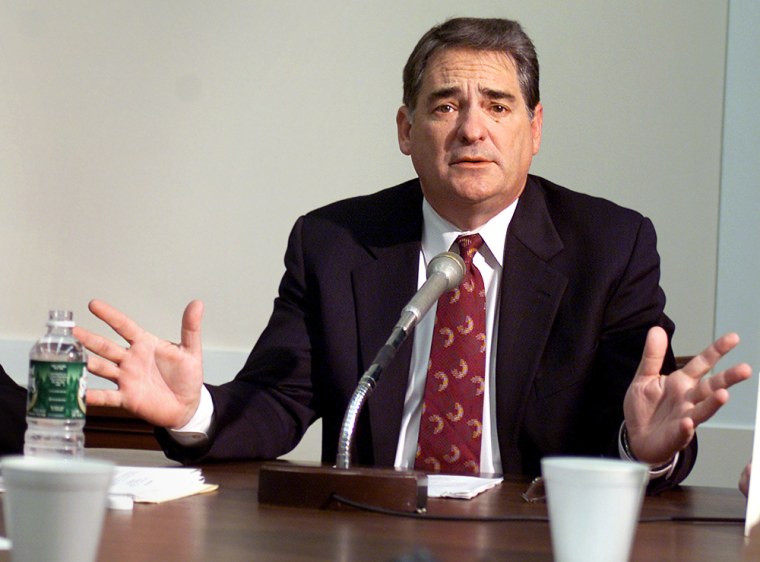If there is a lightning rod for critics of the revolving door between Congress and the private sector, it is Billy Tauzin, who served in the House of Representatives for a dozen terms as a Republican from Louisiana.
As chairman of the House Committee on Energy and Commerce, Tauzin had a key role in drafting and passage of the landmark Medicare Act of 2003. With its provisions for prescription drug coverage, the act was a boon to the nation’s pharmaceutical companies. One recent report said the act could provide drug makers with $2 billion in windfall profits this year alone.
In December 2003, the same month that President Bush signed the bill, the Pharmaceutical Research and Manufacturers of America, which goes by the nickname PhRMA and represents the largest American drug and biotech companies, was pursuing Tauzin to be its president.
News of the negotiations brought harsh criticism from political opponents and watchdog groups. House Minority Leader Nancy Pelosi called Tauzin’s consideration of the PhRMA job “inappropriate" and an "abuse of power." The Center for Responsive Politics pointed out that Tauzin had received more than $200,000 in campaign contributions from drug companies over the previous 15 years, with nearly half of that coming after he ascended to the Energy and Commerce chairmanship in 2002. Even fellow Republicans worried that the job offer was creating conflict-of-interest issues for their party, according to media reports.
By early February 2004, Tauzin had announced he would not seek re-election to the House and would resign his committee chairmanship. And as criticism of the PhRMA offer mounted, he also said he would put his future career plans on hold until leaving Congress in December.
Ten months later, he took the offer
Ten months later, Tauzin announced he would accepted the PhRMA position. He started the day after his last term in Congress ended, insisting that there was no relationship between his work on the Medicare bill and the new job. In fact, he said, his decision to take the PhRMA job was based in part on his own recent battle with intestinal cancer.
"As I worked through my recovery, I realized that I wanted to work in an industry whose mission is no less than saving and enhancing lives," Tauzin said in a statement released by PhRMA.
In taking the job, Tauzin would not disclose what he was being paid but a number of reports at the time pegged his annual compensation from PhRMA at between $1 million and $2 million. On the high end, that would be well more than 10 times what he made in Congress.
The Medicare prescription plan remains a sore spot with many watchdog groups, which say that its cost will be $1.2 trillion over 10 years — triple the $400 billion cited by supporters in 2003. Even the Bush administration, while continuing to defend the bill, now admits it will cost at least $724 billion over 10 years.
The bill "enriched everyone except Americans," says Craig Holman of the non-partisan consumer advocacy group Public Citizen. "The pharmaceutical industry got rich, Congress got rich, the executive branch that worked on the bill got rich. Everyone got rich on this except the American people."
Tauzin is not alone in drawing attention for going to work for drug and other medical firms after the bill passed. A January report detailed how 15 lawmakers, staff members and administration officials took jobs in the health-care industry within a year after the Medicare bill passed.
More than a year after he took the job, the episode is still nagging Tauzin to the point that this month he sent a letter to all member of Congress to deny allegations that he was negotiating the PhRMA job while working on the Medicare law. The letter said in part that Tauzin has "endured repeated injury to my name and reputation as a result of the repetition of these false claims of impropriety."
But even if Tauzin had done what he denies, he would have broken no laws, watchdog groups agree.
"The revolving door is spinning out of control and it really casts Congress in a very negative light," says Holman, noting a year-old study that shows 50 percent of U.S. senators who have left office since 1998 have gone into lobbying, as have 42 percent of House members.
